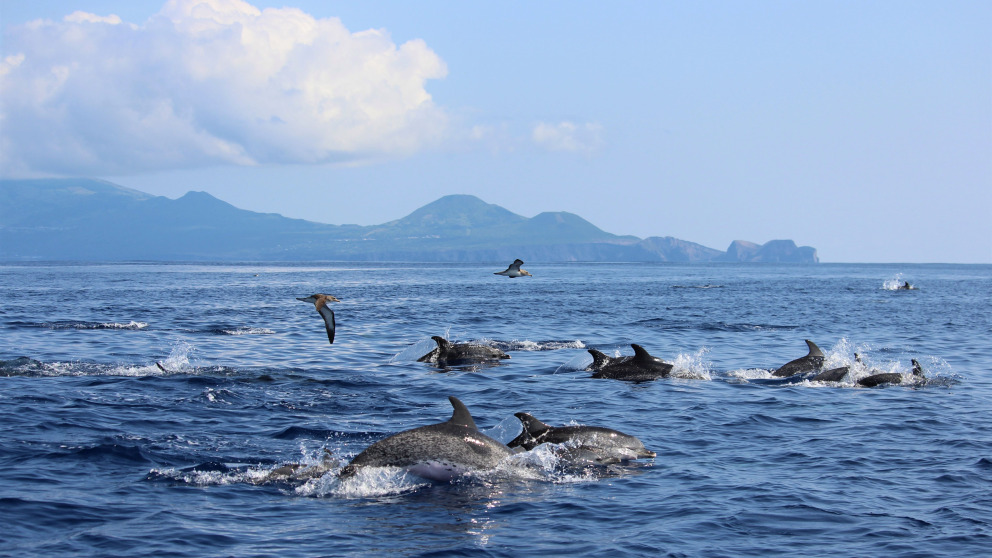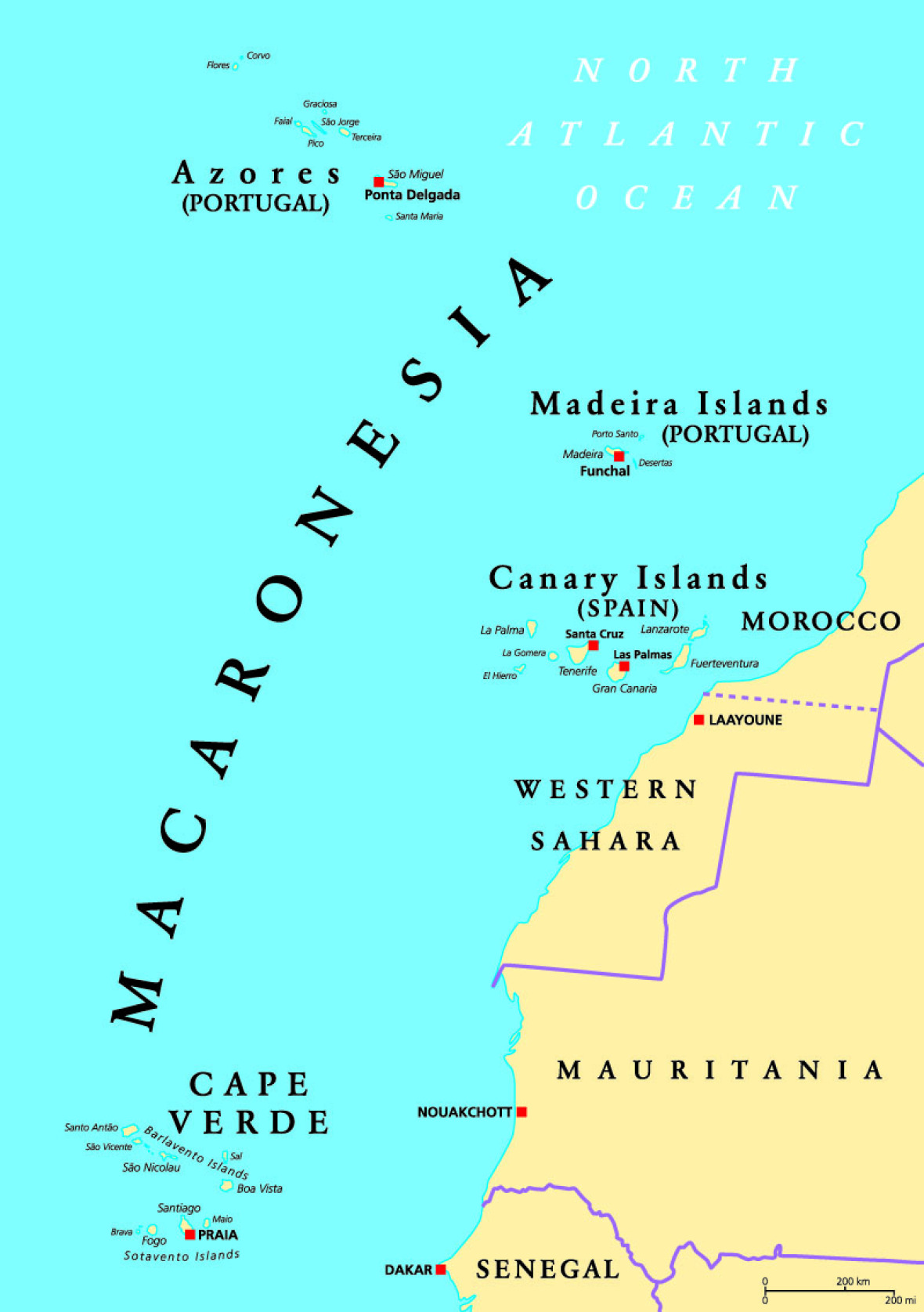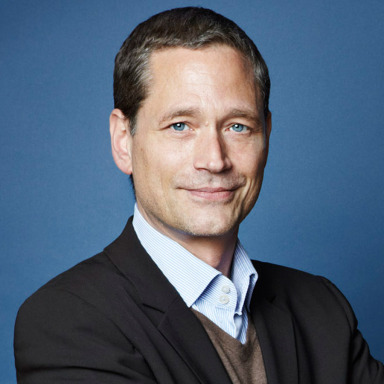New Solutions for Marine Sustainability
01.07.2024
The oceans are of crucial importance for the climate, ecosystems, food security, and trade. Despite this, the unsustainable use of marine resources is undermining the health and resilience of marine ecosystems and species around the world. What can be done to change this? Florian Lennert joined the RIFS as a Klaus Töpfer Sustainability Fellow in April 2024. In this interview, he explains his plans for a platform to develop sustainable marine technologies.

What will you be working on during your fellowship here at the RIFS?
Florian Lennert: The aim is to establish an accelerator for blue-green innovation to support a living lab for sustainable ocean use, ocean conservation, and marine energy transition in Macaronesia. Co-hosted with PLOCAN, a major European hub for Atlantic Ocean research, conservation, and marine innovation, the project will provide an innovation space – both virtual and physical – that will facilitate cooperation between science, investors, start-ups, civil society and public institutions for the joint development of sustainable ocean applications and technologies in the area of maritime transport and logistics, renewable energy, marine aquaculture, ocean observation and conservation, and sustainable ocean resource management.
Why are you focusing on Macaronesia?
F. L.: The Macaronesia Region encompasses a range of volcanic archipelagos in the North Atlantic, comprising the Azores, Madeira, the Canary Islands, and the Cap Verde Islands as well as coastal regions of Morocco, Western Sahara, Mauretania and Senegal. It features a major tropical ocean upwelling that influences global ocean circulation and impacts climate also in Europe. The region is rich in biodiversity and is an important fishery. At the interface of Europe, Africa and the Atlantic, Macaronesia is a nexus of the environmental and social challenges facing coastal and island communities globally. These include mass tourism, overfishing, migration and the resilience of water, energy, waste management, transport and other vital infrastructures. Equally, climate impacts such as rising sea levels will require adaptation and the transformation of key infrastructure and economic sectors. Developing innovative solutions for sustainable ocean use will be crucial to building a blue-green economy in the region and could offer important lessons for other coastal regions and archipelagoes.
We can already observe the escalating and combined ecological, social and economic impacts in the region. As in other parts of southern Europe, we recently saw significant public protests against mass tourism on the Canary Islands. Equally, climate change impacts, the devastation of traditional coastal fishing economies by industrial overfishing, and the current instability in the Sahel Region are significant drivers of rapidly increasing migration from Senegal, Mauretania and other coastal regions to Europe and the Canary Islands specifically. Advancing local economic development based on sustainable ocean use will be critical to addressing urgent conservation challenges and migration pressures in this region. We need to develop innovative and sustainable solutions and technologies for ocean use that can synergistically contribute to ocean conservation as well as climate mitigation and adaption. Testing, piloting and scaling such solutions is a key ambition of the project.

Could you offer us some examples of the solutions currently envisaged?
F. L.: We urgently need to find ways to both conserve and sustainably use the ocean. This requires developing sustainable, distributed and resilient maritime infrastructures that can help us adapt to climate change and contribute to environmental and climate protection. The aim is to facilitate and support innovative solutions that will contribute to:
- Developing clean propulsion and vessel technologies to provide for decarbonization of maritime transport, shipping, logistics and ports;
- Advancing real-time integrated remote sensing, earth and marine observation technologies;
- Innovating sustainable marine aquaculture and marine biotechnology that enhances biodiversity, ecosystem health, and/or provides for carbon mitigation;
- Developing sustainable, zero-discharge, renewable powered, on- and off-shore desalination, and water treatment solutions;
- Scaling and integrating off-shore floating sustainable renewable energy solutions including wind, solar, wave, current, tidal, and geothermal as well as developing smart off-shore and off-grid energy storage solutions that provide for distributed power supply and smart grid applications at sea.
One exciting possibility is the development of integrated multi-platform applications combining, for example, offshore renewable energy with aquaculture systems in an offshore platform. Equally and very importantly, we need to understand how we can effectively transfer solutions from basic research into scalable and marketable technologies and business cases. The aim of the accelerator will be to support start-ups and technology transfer projects in testing and scaling prototypes and innovative applications in the region.
What will be your next steps?
F. L.: A key objective of this project is to review available and potential technologies and nature-based solutions that can contribute to a sustainable blue economy in the region. This requires significant dialogue with local and international stakeholders from civil society, ocean science, industry, NGOs, public administration and relevant international institutions. It also requires the development of an innovation eco-system for the testing, scaling, and implementing of promising applications and technologies. Moving forward, we need to identify relevant start-ups, potential investors, financing strategies and long-term business models.
The fellowship at RIFS enables me to carefully prepare and design the project, to apply research and policy insights and to integrate different stakeholders, partners and networks in the region and globally. I am also exploring collaboration with relevant Helmholtz Centres such as GEOMAR and the Alfred-Wegener Institute. The aim is to finalise the design and business plan for the accelerator and to launch and implement a number of partnerships in 2025. In the spring of 2025, we will host a Sustainable Blue Green Innovation Summit on the Canary Islands to bring together key local, regional and international partners, start-ups and investors and to select the initial projects.
Who will you be cooperating with?
F. L.: The core partner in Macaronesia is PLOCAN - Plataform Oceánica de Canarias - a Spanish-European ocean research and innovation centre on the Canary Islands. PLOCAN builds, equips and operates a set of marine infrastructures for research in the field of marine sciences and technologies in cooperation with many local and international research institutions. PLOCAN provides a living lab for the development of sustainable ocean technologies, including a dedicated offshore platform and marine testing site. We are also excited to cooperate with the GEOMAR Ocean Science Centre on Cabo Verde, which is a vital hub for ocean research and capacity building off the coast of West Africa. In addition, we are engaging with a range of partners from industry, regional economic development and civil society such as the Marina Innova Lab for sustainable tourism on Lanzarote as well as Archipelago Next, an early-stage venture fund in Las Palmas, and Lauch Africa, an African innovation and venture fund. We are also very excited about cooperating with Macrocarbon, a start-up from the Alfred-Wegener Institute. Macrocarbon is based on Gran Canaria and focuses on marine aquaculture of macroalgae for a variety of sustainable applications. Another exciting partner is WeWhale, which operates sustainable whale- and dolphin-watching tours with electric boats in both the Atlantic and the Mediterranean while also supporting vital cetacean research and conservation efforts.

